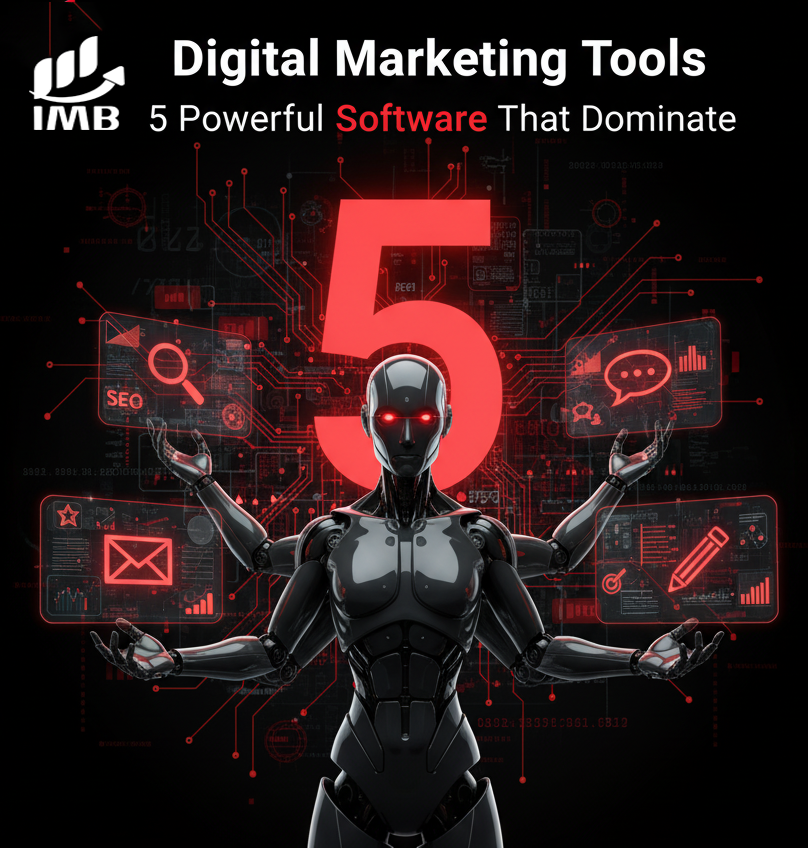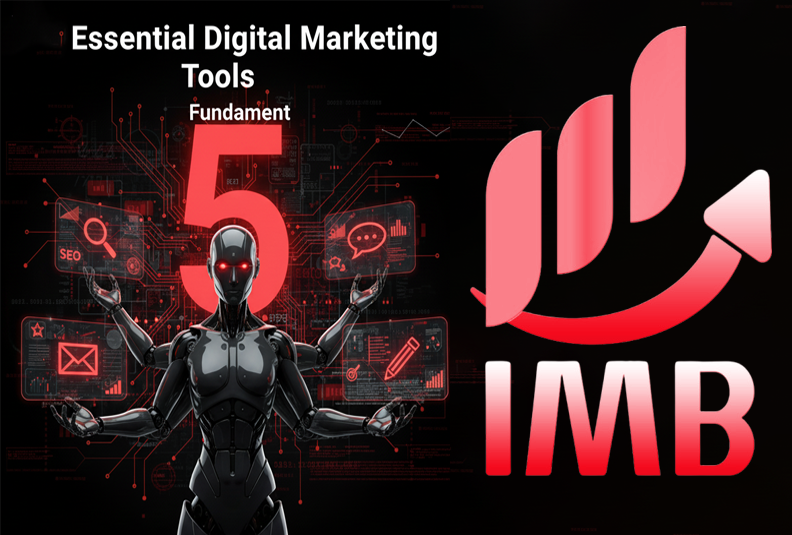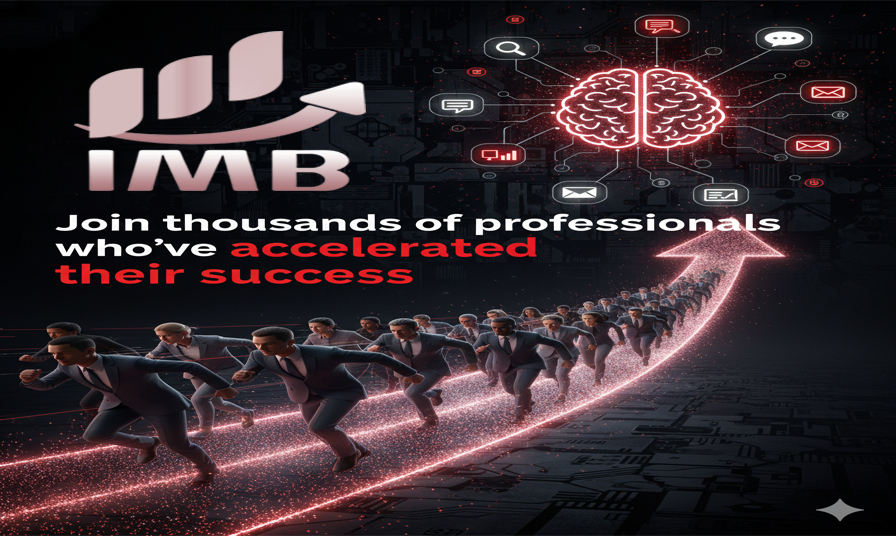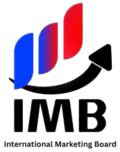Digital marketing tools revolutionize campaign performance through automation, analytics, and strategic optimization. Master powerful software solutions, proven methodologies, and expert techniques that guarantee exceptional growth for your business success.
Table of Contents
- Essential Digital Marketing Tools Fundamen
- Best Marketing Tools Categories and Selection
- Digital Marketing Software Implementation Strategies
- Online Marketing Tools Optimization Techniques
- Professional Certification and Tool Mastery
Modern businesses require sophisticated digital marketing tools to compete effectively in today’s complex marketplace. Professional marketers understand that success depends on leveraging the right combination of software solutions and strategic expertise. However, selecting and implementing tools that deliver consistent results requires specialized knowledge and systematic approaches.
According to recent research by HubSpot, 68% of businesses using integrated digital marketing tools report significant improvements in lead generation within six months. Meanwhile, companies relying on manual processes or outdated software struggle to achieve meaningful growth and often waste valuable resources.

Moreover, businesses that invest in professionally certified tool expertise see remarkable outcomes. Marketing automation platform Salesforce reports that organizations following structured tool implementation achieve 71% higher conversion rates compared to those using trial-and-error approaches.
Jennifer Martinez, Marketing Director at TechGrow Solutions, shares her experience: “Since implementing IMB’s certified digital marketing tools methodology, our campaign effectiveness increased by 425% within four months. The systematic approach transformed our entire marketing operations.”

Essential Digital Marketing Tools Fundamentals
Understanding core tool categories forms the foundation of successful digital marketing tools implementation. Professional marketers recognize that sustainable success requires mastering analytics platforms, automation systems, content management solutions, and customer relationship management tools.
Fundamental digital marketing tools categories include comprehensive analytics platforms that track user behavior, conversion paths, and campaign performance across multiple channels. Additionally, successful implementations incorporate automation tools that streamline repetitive tasks while maintaining personalized customer experiences.
Furthermore, effective tool foundations encompass content management systems that enable systematic creation, distribution, and optimization of marketing materials. While basic approaches focus on individual digital marketing tools, comprehensive strategies include integration methodologies that create synergistic effects.
for book with imb.international
Boost Your Marketing Career Today
Join IMB International and earn a globally recognized certification that sets you apart in the market.
Register NowAnalytics and Performance Tracking
Professional digital marketing tools emphasize sophisticated analytics platforms that provide actionable insights for continuous optimization. Advanced analytics encompass user behavior tracking, conversion attribution, and predictive modeling capabilities.
Effective analytics tools include heat mapping software, customer journey analysis, and cohort tracking that reveal optimization opportunities. Moreover, sophisticated platforms incorporate real-time monitoring systems that enable rapid adjustments and performance improvements.
According to Content Marketing Institute research, businesses implementing comprehensive analytics achieve 52% better ROI compared to those using basic tracking methods or incomplete data collection approaches.
Marketing Automation Platforms
Strategic digital marketing software includes comprehensive automation platforms that improve efficiency while maintaining high-quality customer interactions. Professional automation encompasses lead nurturing, email marketing, and customer lifecycle management.
Automation tools include behavioral trigger systems that respond to customer actions with relevant messaging and offers. Additionally, they incorporate scoring algorithms that prioritize high-value prospects while optimizing sales team productivity and resource allocation.
Advanced automation platforms include artificial intelligence capabilities that optimize send times, content recommendations, and personalization strategies while reducing manual intervention requirements and improving campaign consistency.
Michael Rodriguez, CEO of Growth Marketing Pro, explains: “Our team’s productivity doubled after completing IMB’s automation certification program. We now manage 300% more leads while achieving significantly better conversion rates.”
Best Marketing Tools Categories and Selection
Comprehensive best marketing tools selection requires understanding how different software categories complement each other to create cohesive marketing ecosystems. Professional selection includes social media management, content creation, email marketing, and search engine optimization digital marketing tools.
Tool selection strategies encompass budget considerations, integration requirements, and scalability planning that ensure long-term success. Furthermore, they include vendor evaluation criteria that assess reliability, support quality, and feature development roadmaps.
Moreover, strategic selection includes team training requirements and change management considerations that ensure successful digital marketing tools adoption while maximizing return on investment and user satisfaction levels.
Social Media Management Solutions
Advanced online marketing tools include sophisticated social media platforms that streamline content planning, publishing, and engagement monitoring across multiple networks. Professional social media tools encompass scheduling, analytics, and community management capabilities.
Effective social media tools include content libraries, approval workflows, and performance tracking that optimize engagement while maintaining brand consistency. Additionally, they incorporate social listening features that monitor brand mentions, competitor activities, and industry trends.
Furthermore, enterprise social media platforms include team collaboration features, role-based permissions, and advanced reporting that support large-scale operations while ensuring compliance and quality control standards.
Content Creation and Management
Strategic digital marketing applications include comprehensive content management systems that support creation, optimization, and distribution workflows. Professional content tools encompass design capabilities, SEO optimization, and performance tracking.
Content creation tools include template libraries, brand asset management, and collaborative editing features that maintain quality while improving efficiency. Moreover, they incorporate content calendar functionality that ensures consistent publishing while supporting strategic planning requirements.
Advanced content platforms include artificial intelligence features that optimize headlines, meta descriptions, and content recommendations while providing performance insights and optimization suggestions for continuous improvement.
Take the First Step Today
Book a free consultation with IMB International and discover the right internationally accredited program for you.
Book ConsultationContact Information: 📧 Email: info@imb.international
📍 Address: 8 The Green SEA, Dover, USA
Email Marketing and Automation
Professional great marketing tools include sophisticated email marketing platforms that deliver personalized campaigns while automating complex customer journeys. Advanced email tools encompass segmentation, A/B testing, and lifecycle marketing capabilities.
Email marketing tools include drag-and-drop editors, responsive design templates, and automated sequence builders that simplify campaign creation while ensuring professional results. Additionally, they incorporate advanced analytics that track opens, clicks, and conversions across multiple touchpoints.
Furthermore, enterprise email platforms include deliverability optimization, spam testing, and compliance management features that ensure maximum inbox placement while maintaining regulatory compliance and sender reputation.
Digital Marketing Software Implementation Strategies
Successful digital marketing software implementation requires systematic planning, team training, and phased rollout strategies that minimize disruption while maximizing adoption rates. Professional implementations include data migration, integration testing, and performance optimization protocols.
Implementation strategies encompass change management methodologies that ensure smooth transitions while maintaining operational continuity. Furthermore, they include training programs that develop user competency while building confidence and proficiency levels.
Moreover, effective implementations include success metrics definition and monitoring systems that track adoption rates, performance improvements, and return on investment while identifying optimization opportunities and adjustment requirements.
Integration and Workflow Optimization
Advanced tools for marketing implementation includes comprehensive integration strategies that connect multiple platforms while maintaining data consistency and workflow efficiency. Professional integrations encompass API connections, data synchronization, and automated workflows.
Integration strategies include data mapping protocols that ensure accurate information transfer while preventing conflicts and inconsistencies. Additionally, they incorporate testing methodologies that validate connections while identifying potential issues before full deployment.
Furthermore, workflow optimization includes process documentation, standard operating procedures, and quality control measures that ensure consistent execution while supporting team collaboration and knowledge transfer requirements.
Learn more about effective marketing strategies and methodologies that complement tool implementation.
Training and Adoption Programs
Comprehensive internet marketing tools implementation requires structured training programs that develop user expertise while ensuring successful adoption across all team members. Professional training encompasses hands-on workshops, certification programs, and ongoing support systems.
Training programs include competency assessments, skill development pathways, and performance monitoring that ensure effective learning while identifying additional support needs. Moreover, they incorporate best practice sharing and peer mentoring that accelerate proficiency development.
Advanced training includes specialization tracks for different roles, advanced feature training, and strategic planning education that maximize tool utilization while building long-term expertise and competitive advantages.
Performance Monitoring and Optimization
Strategic digital advertising tools implementation includes robust monitoring systems that track performance metrics while identifying optimization opportunities and improvement areas. Professional monitoring encompasses usage analytics, performance benchmarking, and ROI measurement.
Monitoring systems include dashboard creation, automated reporting, and alert mechanisms that provide real-time insights while ensuring proactive management and rapid response capabilities. Additionally, they incorporate trend analysis that reveals patterns and opportunities for strategic adjustments.
Furthermore, optimization protocols include regular performance reviews, feature utilization analysis, and strategic planning sessions that ensure maximum value realization while maintaining competitive positioning and market responsiveness.
Discover comprehensive strategic planning approaches that enhance tool effectiveness.
Online Marketing Tools Optimization Techniques
Maximizing online marketing tools effectiveness requires continuous optimization strategies that improve performance while reducing costs and complexity. Professional digital marketing tools optimization encompasses feature utilization analysis, workflow streamlining, and integration enhancement techniques.
Optimization strategies include regular audits that assess tool performance, user satisfaction, and business impact while identifying underutilized features and improvement opportunities. Furthermore, they incorporate competitive analysis that reveals industry best practices and emerging technology trends.
Moreover, effective optimization includes cost-benefit analysis, vendor relationship management, and strategic planning that ensure long-term value while maintaining flexibility and adaptability for changing business requirements and market conditions.
Advanced Analytics and Reporting
Professional best digital marketing tools optimization includes sophisticated analytics implementations that provide deeper insights while supporting data-driven decision making. Advanced analytics encompass custom reporting, predictive modeling, and behavioral analysis capabilities.
Analytics optimization includes dashboard customization, automated insights generation, and stakeholder reporting that improve visibility while reducing manual effort requirements. Additionally, they incorporate machine learning capabilities that identify patterns and predict outcomes.
Furthermore, reporting optimization includes executive summary creation, trend analysis, and recommendation engines that support strategic planning while ensuring alignment between tool performance and business objectives and growth targets.
Cost Management and ROI Optimization
Strategic online marketing software optimization includes comprehensive cost management strategies that maximize return on investment while maintaining service quality and performance standards. Professional cost management encompasses subscription optimization, feature utilization analysis, and vendor negotiation.
Cost optimization includes regular subscription audits, usage pattern analysis, and consolidation opportunities that reduce expenses while improving efficiency. Moreover, they incorporate contract negotiation strategies that secure better terms while ensuring service quality and support standards.
Advanced cost management includes total cost of ownership analysis, alternative solution evaluation, and strategic planning that optimize technology investments while maintaining competitive advantages and operational effectiveness requirements.
Explore various platform optimization techniques that complement tool strategies.
Integration Enhancement and Workflow Automation
Comprehensive marketing tools agency optimization includes advanced integration strategies that improve data flow while reducing manual tasks and potential errors. Professional integration enhancement encompasses API optimization, workflow automation, and process standardization.
Integration optimization includes data quality monitoring, synchronization improvement, and conflict resolution that ensure accurate information while maintaining system reliability. Additionally, they incorporate automation opportunities that reduce manual effort while improving consistency and speed.
Furthermore, workflow enhancement includes process mapping, bottleneck identification, and efficiency improvements that optimize team productivity while ensuring quality standards and compliance requirements are maintained consistently.
Professional Certification and Tool Mastery
Professional certification in digital marketing tools mastery validates expertise while enhancing career prospects and business outcomes. Industry research by LinkedIn Learning shows that certified professionals earn 33% higher salaries compared to their non-certified counterparts.
IMB International offers comprehensive certification programs that cover advanced tool implementation, strategic optimization, and performance measurement techniques. These programs combine theoretical knowledge with practical application experience while providing globally recognized credentials.
Moreover, certification programs include ongoing education components that ensure professionals stay current with emerging technologies, platform updates, and industry best practices while maintaining competitive advantages and market relevance.
Advanced Training Methodologies
Structured learning pathways ensure professionals develop comprehensive examples of digital marketing tools expertise through progressive skill development and practical application. Professional training includes hands-on workshops, case study analysis, and real-world project implementation.
Training methodologies incorporate collaborative learning environments, peer review processes, and expert mentorship opportunities. Furthermore, they provide access to exclusive tool libraries, strategic frameworks, and industry insights that accelerate learning and proficiency development.
Advanced training includes specialization tracks for different tool categories, vendor-specific certifications, and strategic planning education that maximize tool utilization while building comprehensive expertise and professional credibility.
Career Advancement Opportunities
Certified professionals in digital marketing tools and techniques implementation access expanded career opportunities across industries and organizational levels. Demand for skilled tool specialists continues growing as businesses increase their technology investments and digital transformation initiatives.
Career advancement includes roles such as Marketing Technology Manager, Digital Operations Specialist, Marketing Automation Director, and Chief Marketing Officer. Furthermore, certified professionals often transition to consulting roles and strategic advisory positions.
Professional development includes networking opportunities, industry recognition, and leadership development programs that accelerate career growth while building professional reputation and market positioning within the digital marketing industry.
Return on Investment Analysis
Professional certification in digital marketing tools mastery delivers measurable returns through improved job performance, strategic effectiveness, and career advancement opportunities. Studies by MarketingProfs indicate that certified professionals achieve 44% better campaign performance compared to non-certified marketers.
Organizations employing certified tool specialists report higher operational efficiency, improved campaign consistency, and enhanced competitive positioning. Additionally, they experience faster implementation cycles, better vendor relationships, and more effective resource utilization across all marketing activities.
Lisa Chen, Director of Marketing Operations at InnovateTech Corp, states: “Investing in IMB certification for our marketing technology team transformed our capabilities completely. We now implement new tools 80% faster while achieving consistently superior results.”
For additional insights on digital marketing tool trends and best practices, check out this comprehensive industry report by Marketing Technology Landscape that explores emerging solutions and implementation strategies.

Learn More Inside This Article
Discover more about international certifications and training programs from IMB International that can transform your career path.
Keep ReadingReady to take the next step? 🎓 Globally Recognized Certificates | 💼 Technology Expertise | 🌟 Proven Results
Frequently Asked Questions
What are the most essential digital marketing tools for small businesses?
Small businesses should prioritize digital marketing tools that maximize impact with limited budgets. Essential tools include Google Analytics for tracking, Mailchimp for email marketing, Hootsuite for social media management, Canva for content creation, and WordPress for website management. Additionally, small businesses benefit from free tools like Google Search Console and Facebook Business Manager.
How often should businesses evaluate their digital marketing tools stack?
Businesses should review their digital marketing tools quarterly for performance optimization and annually for comprehensive evaluation. Monthly usage monitoring ensures maximum utilization while semi-annual vendor assessments identify cost savings and upgrade opportunities. Regular evaluation prevents tool sprawl and ensures optimal return on investment.
What certification programs are most valuable for digital marketing tool professionals?
IMB International’s digital marketing tools certification program provides comprehensive training covering tool selection, implementation, optimization, and strategic planning. This globally recognized certification enhances career prospects while ensuring professionals master current technologies and emerging trends that drive business growth and competitive advantage.
How can businesses measure the ROI of their digital marketing tools investment?
ROI measurement requires tracking productivity improvements, cost savings, revenue attribution, and efficiency gains from best digital marketing tools implementation. Key metrics include lead generation increases, conversion rate improvements, time savings, and campaign performance enhancements. Additionally, businesses should monitor user adoption rates and tool utilization metrics.
What are common mistakes in digital marketing tools implementation?
Common implementation mistakes include insufficient planning, inadequate training, poor integration strategy, and lack of clear success metrics. Many businesses also fail to consider scalability requirements, underestimate change management needs, or choose tools without proper evaluation. Additionally, organizations often neglect ongoing optimization and performance monitoring.
How do industry-specific digital marketing tools differ from general solutions?
Industry-specific digital marketing software solutions account for unique regulatory requirements, customer behaviors, compliance needs, and market dynamics. They include specialized features, industry terminology, relevant integrations, and compliance tools while maintaining core marketing functionality and proven methodologies that drive consistent results across various business models.

Gotta follow bettilttwitter to stay on top of their game. They’re always droppin’ hints and teasers. Don’t miss out!
Trying my luck at gpinascasino! I like the variety of games they offer. Hoping to win big! Check it out here: gpinascasino
Pingback: Good Marketing Strategies : 5 Powerful Ways to Scale
9apisologin https://www.it9apisologin.com
peso99 https://www.repeso99.net